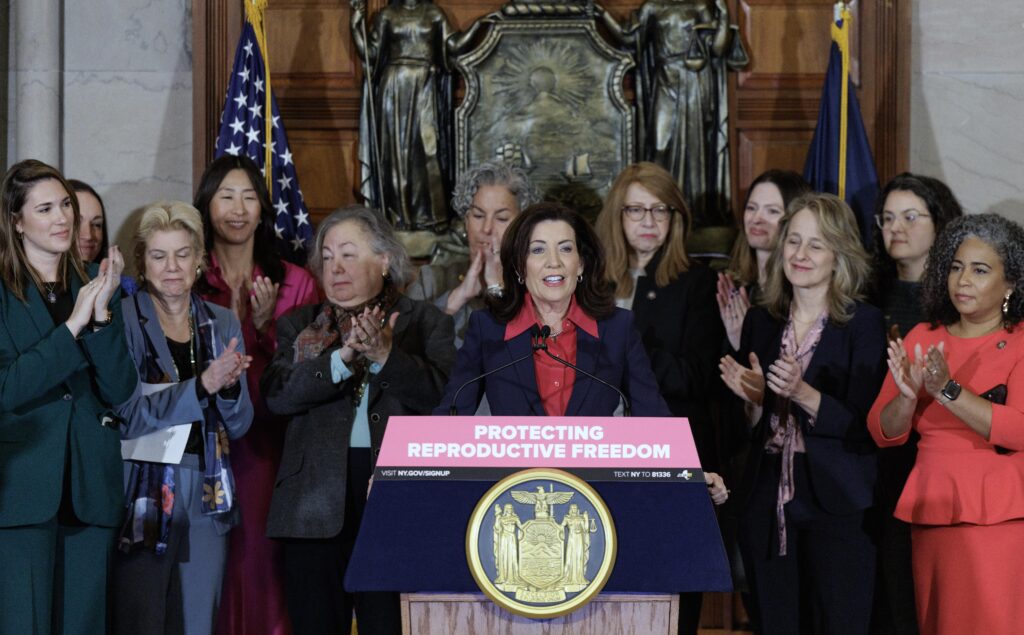As the legal landscape surrounding reproductive rights and transgender healthcare undergoes unprecedented shifts, New York stands at a critical crossroads. With mounting challenges to abortion access and gender-affirming care across the United States, advocates are calling for the state to bolster its shield laws—legal protections designed to safeguard patients and providers from intrusive investigations and prosecutions. Strengthening these laws is increasingly seen as essential to ensuring that New Yorkers can securely access vital medical services without fear of legal reprisal. This op-ed examines why New York must act decisively to fortify its defenses in the face of growing threats to abortion and trans healthcare.
The Current Landscape of Shield Laws in New York and Their Limitations
Shield laws in New York currently offer a basic level of protection for medical providers and patients, primarily geared toward confidentiality in sensitive cases. These laws aim to prevent the forced disclosure of personal health information in legal settings. However, the scope remains limited, particularly when it comes to protecting those involved in abortion and transgender healthcare. As federal and neighboring state legislations become increasingly hostile, New York’s shield laws have yet to evolve sufficiently to safeguard providers from cross-state legal entanglements or subpoenas that can chill the willingness to offer essential care.
Critical limitations of New York’s shield laws include:
- Inadequate protection against out-of-state legal actions targeting abortion and gender-affirming care providers
- Limited immunity clauses that do not fully shield medical information from being subpoenaed
- Absence of explicit language that defends providers against criminal prosecution related to abortion or trans care
| Aspect | Current Status | Needed Improvement |
|---|---|---|
| Scope of Coverage | Healthcare confidentiality broadly | Explicit inclusion of abortion and trans care |
| Cross-state Protections | None | Strong protections against out-of-state subpoenas |
| Legal Immunity | Partial | Robust immunity for providers and patients |
The Impact of Weak Shield Protections on Abortion and Transgender Healthcare Access
In states with weak or inconsistent shield laws, individuals seeking abortion and transgender healthcare face significant risks that extend far beyond legal uncertainties. Weak protections leave medical professionals vulnerable to legal repercussions, leading many providers to limit or entirely cease offering critical services. This creates barriers to timely and safe care, forcing patients to travel long distances or resort to unregulated means, which gravely jeopardizes their health and well-being. Moreover, lack of confidentiality protections exposes sensitive patient information to law enforcement, amplifying fears of discrimination and deterring people from seeking essential treatments.
The consequences are particularly severe for marginalized communities, including low-income and rural populations, who disproportionately bear the burden of inaccessible care. Consider the following challenges stemming from inadequate shield laws:
- Increased travel costs and logistical burdens for obtaining care
- Heightened anxiety and stigma due to privacy violations
- Reduced availability of knowledgeable healthcare providers
- Potential criminalization of patients and providers
| Consequence | Impact | Population Most Affected |
|---|---|---|
| Travel for Care | Distances over 300 miles on average | Rural & low-income communities |
| Service Closures | 30% reduction in clinics statewide | Transgender patients & pregnant individuals |
| Legal Exposure | 35% increase in prosecutions | Healthcare providers & patients |
Without bolstered legal defenses, the safety, privacy, and accessibility of abortion and trans healthcare remain under continuous threat. Strengthening shield laws is imperative to uphold fundamental healthcare rights and protect vulnerable communities from the cascading effects of legal and social instability.
Legal and Social Implications of Strengthening Shield Laws for Providers and Patients
Strengthening shield laws for abortion and trans care providers is not just a legal imperative but a profound social necessity. These laws offer critical protections, ensuring that healthcare professionals can deliver sensitive care without the looming threat of criminal prosecution or harassment. In an era marked by increased legal challenges and targeted violence against these services, enhanced protections would foster a safer clinical environment and affirm the patient-provider confidentiality that is foundational to medical ethics. Furthermore, empowering providers with legal safeguards helps normalize and protect access to essential healthcare, reducing stigma and encouraging more individuals to seek the care they need without fear.
On a societal level, robust shield laws also serve as a bulwark against discriminatory policies that disproportionately impact marginalized communities, including people of color and low-income patients. By protecting both providers and patients, these laws promote equity and justice in healthcare access. Consider the following social benefits of fortified shield laws:
- Preservation of patient privacy amidst increasing digital surveillance and data breaches.
- Reduction in legal intimidation tactics used to block or delay care.
- Support for medical professionals facing political and social pressures.
- Enhancement of trust between patients and the healthcare system.
| Legal Protection | Social Impact |
|---|---|
| Confidentiality guarantee | Increased patient willingness to seek care |
| Immunity from subpoenas | Reduction in harassment of providers |
| Shield against out-of-state prosecution | Cross-state access to care protections |
Policy Recommendations to Fortify Protections and Safeguard Reproductive and Trans Care Rights
To ensure New York remains a sanctuary for reproductive and transgender healthcare, legislative bodies must enact comprehensive shield laws that extend beyond traditional protections. These laws should explicitly protect not only abortion providers but also clinics and practitioners offering gender-affirming care from out-of-state legal actions that threaten their operations. Furthermore, policies must incorporate robust confidentiality provisions, safeguarding patient data with the highest standards to prevent exploitation by jurisdictions hostile to reproductive and trans rights.
Policy frameworks could be further strengthened by deploying a multi-layered approach, including:
- Interstate Legal Support: Mechanisms that enable New York courts to refuse cooperation with subpoenas or warrants targeting healthcare providers abiding by state law.
- Funding and Resources: Dedicated financial support to clinics ensuring uninterrupted access to critical services, especially in underserved communities.
- Public Education Initiatives: Campaigns to raise awareness around protections and combat misinformation regarding reproductive and trans care rights.
- Provider Protections: Explicit criminal and civil safeguards for healthcare professionals against harassment or intimidation tactics.
| Policy Element | Intent | Impact |
|---|---|---|
| Shield Law Expansion | Prevent cross-state legal overreach | Maintains local autonomy in healthcare decisions |
| Data Confidentiality Protections | Secure patient information | Reduces risk of targeted surveillance |
| Funding for Clinics | Enhance service accessibility | Supports sustainable operation and outreach |
| Legal Support Networks | Offer defense and guidance for providers | Minimizes legal exposure for healthcare workers |
Closing Remarks
As legislative pressures mount across the nation, New York stands at a pivotal crossroads in safeguarding access to abortion and transgender healthcare. Strengthening shield laws is not merely a legal imperative but a necessary reaffirmation of the state’s commitment to protecting vulnerable individuals and upholding medical privacy. The path forward demands decisive action from policymakers to ensure that New Yorkers can seek essential care without fear of surveillance or prosecution. In defending these rights, New York can serve as a beacon for other states navigating similar battles in the evolving landscape of reproductive and gender-affirming healthcare.













